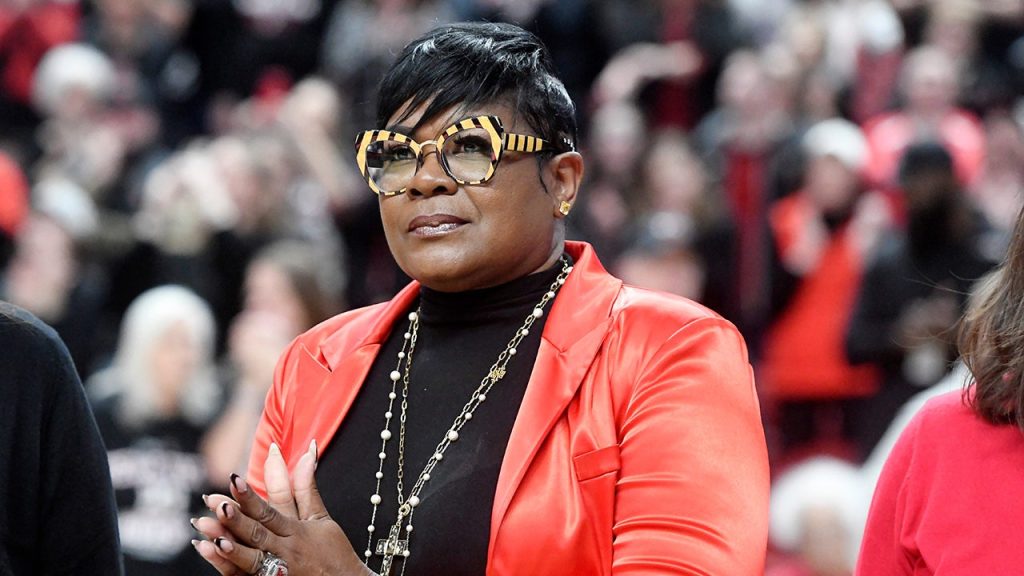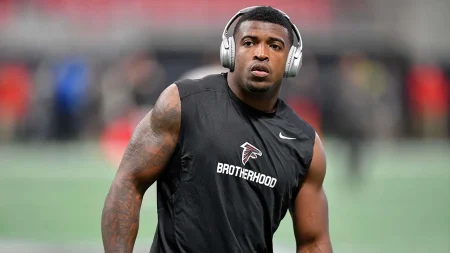Sheryl Swoopes, a four-time WNBA champion and a pivotal figure in the league’s history as its first-ever signee, has often found herself at odds with the meteoric rise of Caitlin Clark, the Indiana Fever star who captivated the basketball world with her dazzling performances. Swoopes, known for her candid assessments, has previously questioned Clark’s dominance in the league, a stance that drew considerable attention, especially after Clark was crowned WNBA Rookie of the Year. However, a recent podcast appearance saw Swoopes in a different light, struggling to articulate a response to Clark’s candid acknowledgment of her privilege as a white athlete in a sport historically built on the contributions of Black women.
The context for this intriguing exchange was Clark’s selection as Time magazine’s Athlete of the Year, a historic first for a WNBA player. While Swoopes acknowledged the significance of the accolade for both Clark and the league, emphasizing the increased visibility it brought to women’s basketball, she also expressed curiosity about the selection criteria. Was it solely based on Clark’s on-court brilliance, undeniably impressive as it was, or did it also encompass the broader impact she had on the game that season? Swoopes’ questioning reflected a nuanced perspective, acknowledging Clark’s individual achievements while also prompting a deeper consideration of the factors contributing to such prestigious recognition.
The crux of the matter, however, lay in Clark’s remarks to Time magazine, where she openly acknowledged her privilege as a white athlete in a league predominantly shaped by Black players. Clark’s statement went beyond mere acknowledgment; it reflected a conscious understanding of the historical context of the WNBA and the contributions of Black women who paved the way for her success. She emphasized the importance of recognizing, highlighting, and celebrating these contributions, advocating for greater investment and support for the Black players who have been instrumental in the league’s growth. Clark’s words underscored a commitment to leveraging her platform to elevate Black women and promote a more equitable landscape within the sport.
Swoopes’ silence in response to these remarks was perhaps the most telling aspect of the podcast exchange. Her apparent non-verbal cues – a raised eyebrow and a nod – hinted at a complex internal processing of Clark’s statement, a moment pregnant with unspoken thoughts and considerations. This reticence contrasted sharply with her previous outspoken critiques of Clark’s performance, suggesting that Clark’s acknowledgment of privilege might have struck a deeper chord, prompting a moment of reflection and perhaps a reassessment of her own perspectives.
The stark contrast between Swoopes’ prior criticisms of Clark’s on-court performance and her muted response to the privilege discussion highlights the multifaceted nature of their relationship, one that transcends mere on-court rivalry. Swoopes, as a pioneering figure in the WNBA, carries the weight of the league’s history and the struggles faced by its predominantly Black players. Her initial critiques of Clark could be interpreted through this lens, perhaps reflecting a desire to see the younger star fully appreciate the legacy she inherited.
Clark’s acknowledgment of privilege, therefore, adds a new layer to this dynamic. It suggests a willingness to engage with the historical context of the WNBA and the systemic inequities that persist within the sport. This recognition, coming from a rising star with significant influence, potentially signals a shift in the conversation, opening up space for more nuanced discussions about race, privilege, and the ongoing fight for equality within women’s basketball. Swoopes’ silence, in this context, might be interpreted not as disagreement, but as a moment of thoughtful consideration, a pause before engaging with the complex implications of Clark’s words.










